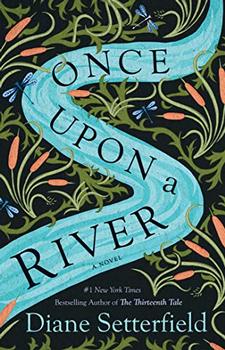Summary | Excerpt | Reading Guide | Reviews | Beyond the Book | Readalikes | Genres & Themes | Author Bio

The Story Begins ...
There was once an inn that sat peacefully on the bank of the Thames at Radcot, a day's walk from the source. There were a great many inns along the upper reaches of the Thames at the time of this story and you could get drunk in all of them, but beyond the usual ale and cider each one had some particular pleasure to offer. The Red Lion at Kelmscott was musical: bargemen played their fiddles in the evening and cheesemakers sang plaintively of lost love. Inglesham had the Green Dragon, a tobacco-scented haven of contemplation. If you were a gambling man, the Stag at Eaton Hastings was the place for you, and if you preferred brawling, there was nowhere better than the Plough just outside Buscot. The Swan at Radcot had its own specialty. It was where you went for storytelling.
The Swan was a very ancient inn, perhaps the most ancient of them all. It had been constructed in three parts: one was old, one was very old, and one was older still. These different elements had been harmonized by the thatch that roofed them, the lichen that grew on the old stones, and the ivy that scrambled up the walls. In summertime day-trippers came out from the towns on the new railway, to hire a punt or a skiff at the Swan and spend an afternoon on the river with a bottle of ale and a picnic, but in winter the drinkers were all locals, and they congregated in the winter room. It was a plain room in the oldest part of the inn, with a single window pierced through the thick stone wall. In daylight this window showed you Radcot Bridge and the river flowing through its three serene arches. By night (and this story begins at night) the bridge was drowned black and it was only when your ears noticed the low and borderless sound of great quantities of moving water that you could make out the stretch of liquid blackness that flowed outside the window, shifting and undulating, darkly illuminated by some energy of its own making.
Nobody really knows how the tradition of storytelling started at the Swan, but it might have had something to do with the Battle of Radcot Bridge. In 1387, five hundred years before the night this story began, two great armies met at Radcot Bridge. The who and the why of it are too long to tell, but the outcome was that three men died in battle, a knight, a varlet, and a boy, and eight hundred souls were lost, drowned in the marshes, attempting to flee. Yes, that's right. Eight hundred souls. That's a lot of story. Their bones lie under what are now watercress fields. Around Radcot they grow the watercress, harvest it, crate it up, and send it to the towns on barges, but they don't eat it. It's bitter, they complain, so bitter it bites you back, and besides, who wants to eat leaves nourished by ghosts? When a battle like that happens on your doorstep and the dead poison your drinking water, it's only natural that you would tell of it, over and over again. By force of repetition you would become adept at the telling. And then, when the crisis was over and you turned your attention to other things, what is more natural than that this newly acquired expertise would come to be applied to other tales? Five hundred years later they still tell the story of the Battle of Radcot Bridge, five or six times a year on special occasions.
The landlady of the Swan was Margot Ockwell. There had been Ockwells at the Swan for as long as anyone could remember, and quite likely for as long as the Swan had existed. In law her name was Margot Bliss, for she was married, but law was a thing for the towns and cities; here at the Swan she remained an Ockwell. Margot was a handsome woman in her late fifties. She could lift barrels without help and had legs so sturdy, she never felt the need to sit down. It was rumored she even slept on her feet, but she had given birth to thirteen children, so clearly she must have lain down sometimes. She was the daughter of the last landlady, and her grandmother and great-grandmother had run the inn before that, and nobody thought anything of it being women in charge at the Swan at Radcot. It was just the way it was.
Excerpted from Once Upon a River by Diane Setterfield. Copyright © 2018 by Diane Setterfield. Excerpted by permission of Atria Books. All rights reserved. No part of this excerpt may be reproduced or reprinted without permission in writing from the publisher.
Your guide toexceptional books
BookBrowse seeks out and recommends the best in contemporary fiction and nonfiction—books that not only engage and entertain but also deepen our understanding of ourselves and the world around us.